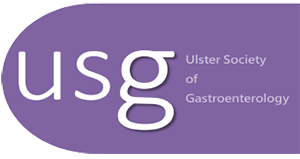The investigation and treatment of Iron deficiency Anaemia in patients presenting to endoscopy
Authors
Carson C, Ferguson CDepartments / Institutions
Altnagelvin, Western TrustPublication Date
Autumn 2014Introduction
Long-course chemo-radiotherapy (LCCRT) is recommended prior to surgical management of locally advanced rectal tumours. The need for re-staging has been questioned. The purpose of this study was to determine if re-staging affected the management of patients receiving pre-operative LCCRT for rectal cancer.
Methods
125 successive patients undergoing endoscopy for IDA were audited retrospectively using endoscopy records, casenotes and laboratory systems.
Results
57% were female and age distribution was wide, peaking in the 8th decade. Ferritin and TSAT studies indicated patients had IDA, MCV was low in only 51% while low MCH was seen in 77%. 60% of patients experienced a delay >1 month in checking iron studies and 42% didn’t commence corrective treatment within a month of this result. 45% of patients didn’t have a haemoglobin check within 4 weeks and 13% were never checked. 27% of patients showed no improvement to oral therapy but only 9% of patients received an iron infusion, whereas 30% of patients eventually received a blood transfusion. 40% of patients waited >3 months for endoscopy investigation and 49% had no coeliac screen. 32% of OGD were repeats as were 23% of lower GI investigations. 7 new cancers were found none had been previously investigated.
Conclusion
The Audit identified deficiencies in the management of IDA against current standards. This could be improved with timely assessment of iron studies, prompt treatment, better utilization of parenteral iron and a standardized follow-up strategy to ensure correction of iron deficiency. Coeliac serology should also be routinely checked in anyone with IDA.
Latest News
Gastroenterology FK Meeting Provision and Challenges
Posted on: 2nd April 2021Latest Event
There are no up-coming events.E-Publications
Download our latest Documents


